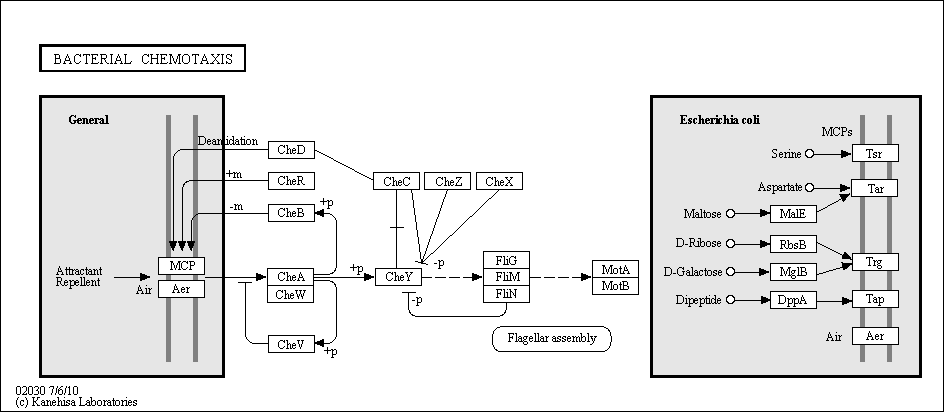Bacterial Chemotaxis
Description: Bacterial chemotaxis is a process in which bacteria, somatic cells, single-celled organisms and multicellular organisms direct their movements according to certain chemical signals within their environment. Chemotaxis is critical to early development and normal function of organisms as they learn to respond to favorable environments and avoid unfavorable ones. Ultimately this allows the bacteria to change movement patterns to better benefit the organism.
Positive chemotaxis is if movement is in the direction of a higher concentration (towards food for the organism) and negative chemotaxis is if movement is in the opposite direction (away from a poison or toxin to the organism). The detection of positive and negative substances is due to chemo-receptors. Ultimately many different types of bacteria rely on chemotaxis for their survival.

Related BMRB Molecules
For complete information about pathway, see KEGG [map02030]
